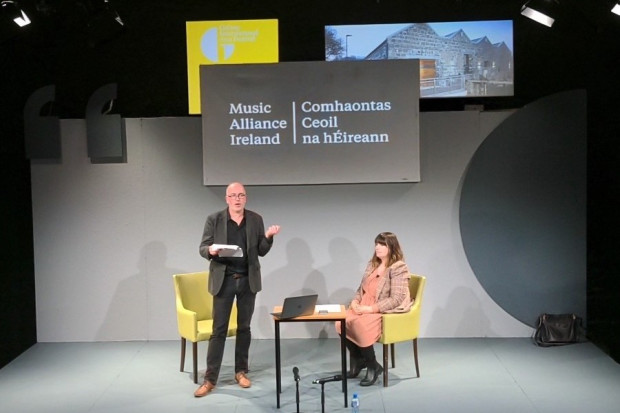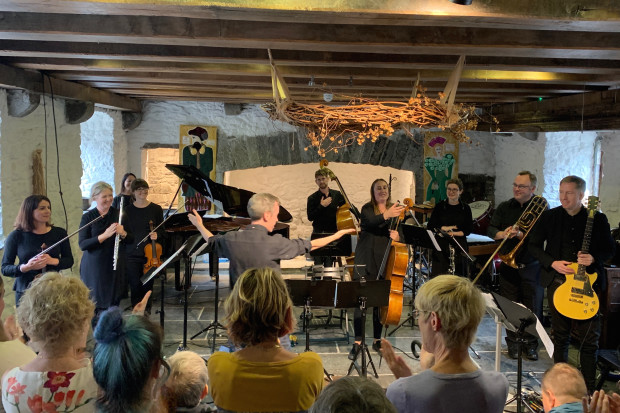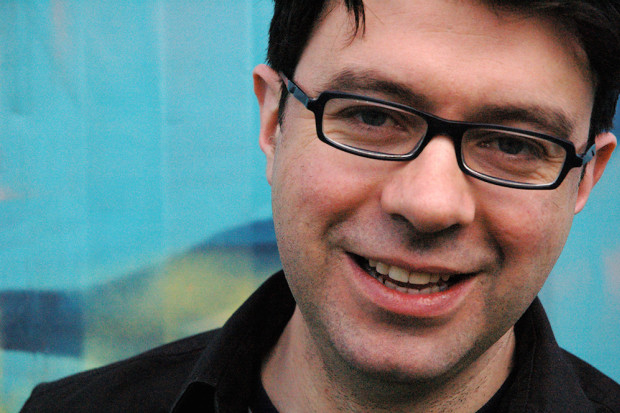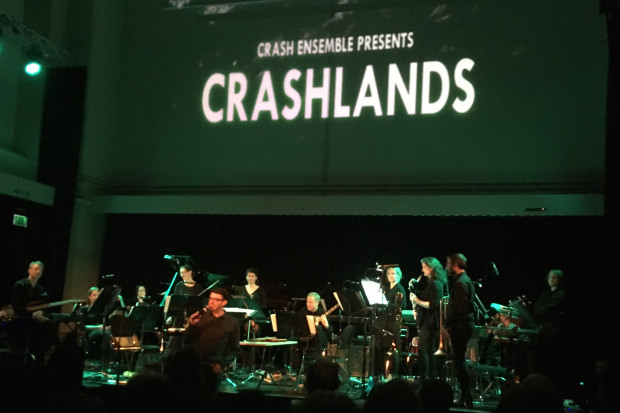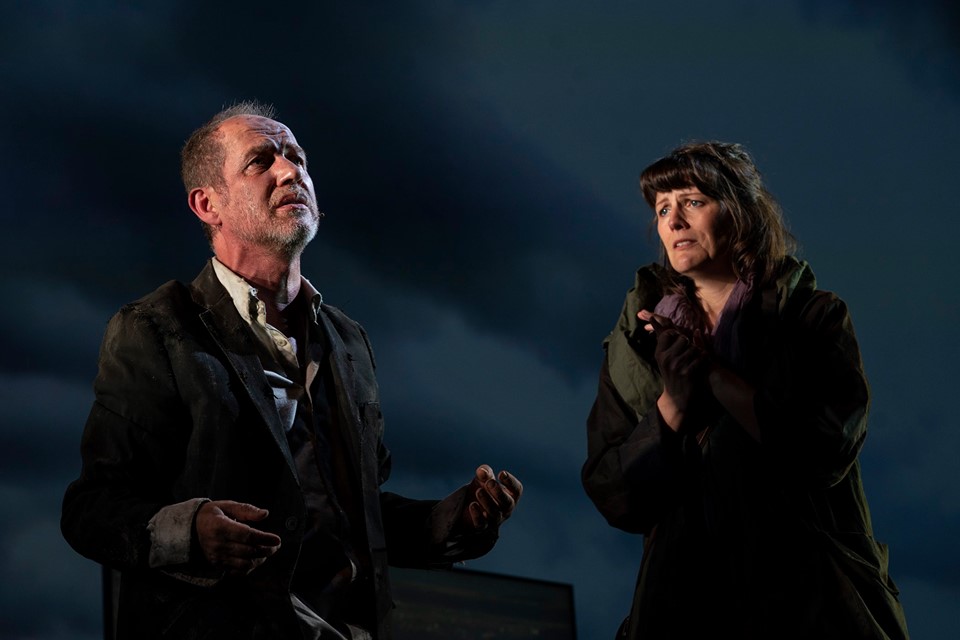
Iarla Ó Lionáird and Katherine Manley in ‘The Hunger’
Questions the Famine Left Behind
To an extent, you can guess what you’re in for with a story about the Great Famine. It’s bleak subject matter, and, for characters involved, it’s not going to end well. For The Hunger, a new stage work which received its European premiere at the Abbey Theatre last week (21 August), composer Donnacha Dennehy invented a fictional Irish man, portrayed by Iarla Ó Lionáird, who sings in Irish and in the sean-nós style, and combines his part with words by the American humanist Asenath Nicholson, who travelled to Ireland during the famine, sung by Katherine Manley.
The set design allowed Crash Ensemble, who performed the work, to take equal prominence to the singers. The group was onstage, Alan Pierson conducting from the front right. The set proper as it were, a slant of barren hill, sundered the ensemble, leaving strings and wind in front of it, percussion behind. Over the course of the performance, the two singers trade places – Ó Lionáird moving to the top right of the stage from the bottom left, Manley the reverse – in a metaphorical journey to heaven and hell.
Across the hill, five televisions were arranged. For most of the performance, the screens displayed scenes of the Irish countryside, hills, skies and grass, often with a translation of Ó Lionáird’s Irish superimposed on them. At key points, talking heads – Megan Vaughan, Paul Krugman, Noam Chomsky, among others – appeared on screen to speak about the causes and effects of the famine.
Every lift of the shovel
Dennehy’s sharp-edged sound dominates the ensemble writing, with the persistent, intense pulse at the climaxes showing some debt to Reich’s Music for 18 Musicians. Over it, the singers’ voices are strongly contrasted, Ó Lionáird’s dry and cold as turned earth, Manley’s warm and bright.
Ó Lionáird’s physical performance was as good as his musical one. Every footfall and every lift of the shovel and every struggle to his knees or feet showed its cost. There can be a danger incorporating one style of music within another, that it can sound like a mishmash of both, with the strengths of neither. Mercifully, this wasn’t the case here; the blend of sean-nós with Dennehy’s style is as good a combination of two genres as I have heard. This was partly due to the choice to bring the voice to the fore, and partly the nature of the scoring, an undulating curtain built from the singer’s overtones.
Manley’s voice, by contrast, singing short lyrical phrases, tended to float in above the textures. Her voice, towards the end, was pinched with sorrow and anger.
The hunger of the free market
The appearances of the TV talking heads tended to arrive at softer moments in the music, to an extent turning the Crash Ensemble into the soundtrack for a live documentary. Dennehy refers to the work as a ‘docu-cantata’ rather than an opera, and more than anything else these figures, all speaking from interviews with the director Tom Creed, provided the ‘docu’ element.
It was hard not to feel ambivalent towards the use of the interview footage. While the context it provided was interesting, and it broadened the theme to the hunger of the free market which caused the famine, the interviews rarely felt fully integrated so much as layered atop the music. It’s questionable whether they’re truly necessary from a musical standpoint; certainly the recently released recording by Alarm Will Sound doesn’t suffer from their absence.
Which is where the central conflict in my response to the work lies. The music and drama were often beautiful and moving – at one key scene 30 minutes in I felt utterly broken – but my most visceral response was to the interviews. Not that they contained anything particularly revelatory, but their focus on the free-market politics that caused and exacerbated the famine, and subsequent humanitarian problems, was keenly felt as, today, the Amazon burns, the climate changes, and powerful countries become even more insular and closed-off. There’s a sense of powerless paralysis in the face of problems this large – a theme explored also in Cherry Smyth’s recent poetical and musical live work Famished.
Towards the end of Dennehy’s work, each performer has one song ostensibly sung to themselves, but addressed outward. Ó Lionáird’s prayer, ‘Don’t abandon us’, is sung not to God but to the audience. A short while later, Manley sings, ‘I shall never forget’, and, ‘What am I to do? What can I do?’
What Asenath Nicholson did do was to turn to activism. But at the end of The Hunger, the TV screens glitch out. The questions hang unanswered.
Visit crashensemble.com and alarmwillsound.com.
Published on 29 August 2019
Brendan Finan is a teacher and writer. Visit www.brendanfinan.net.














